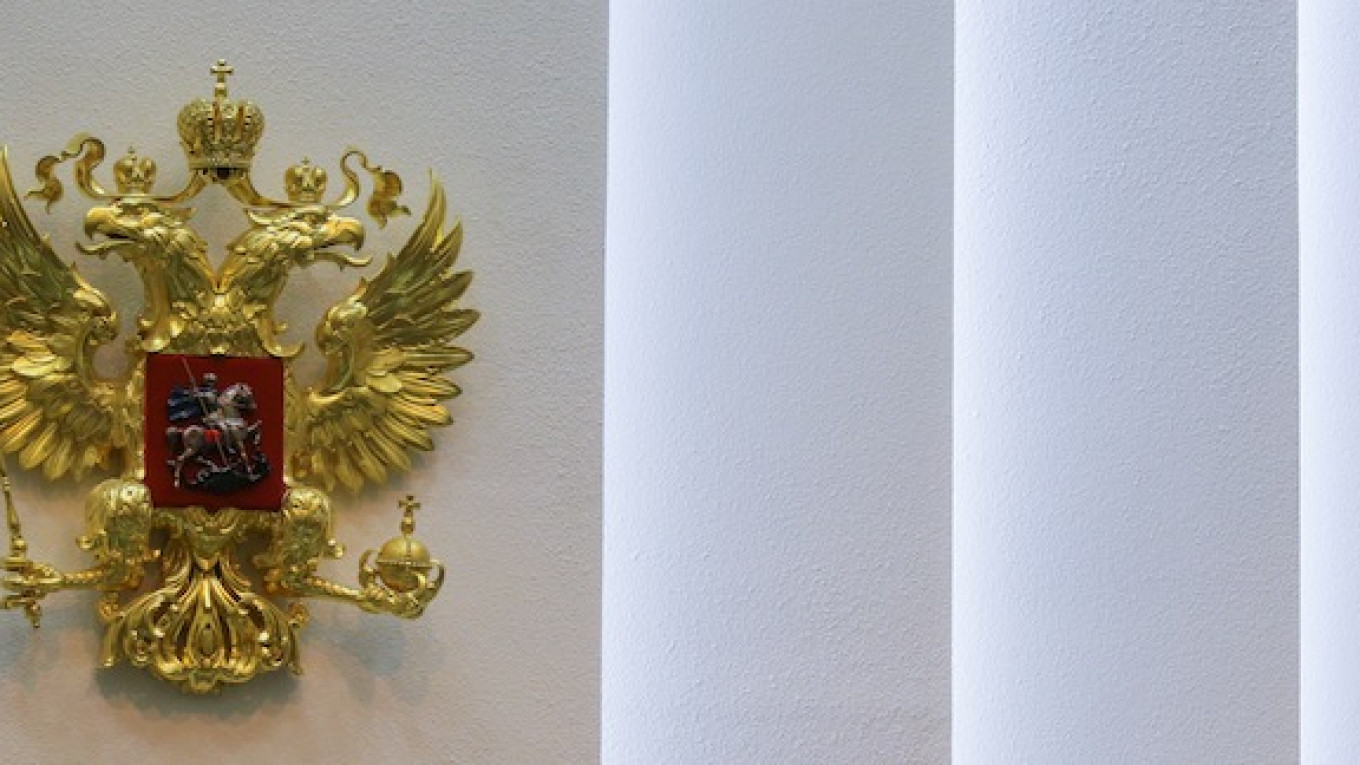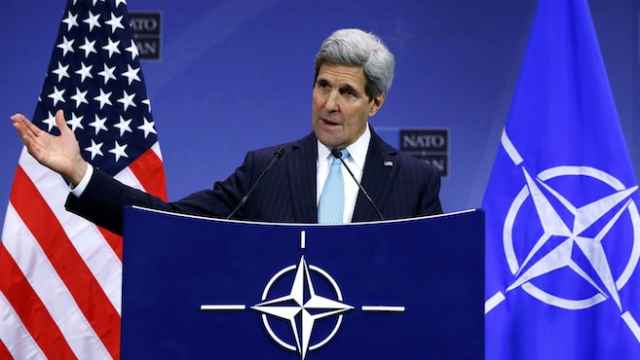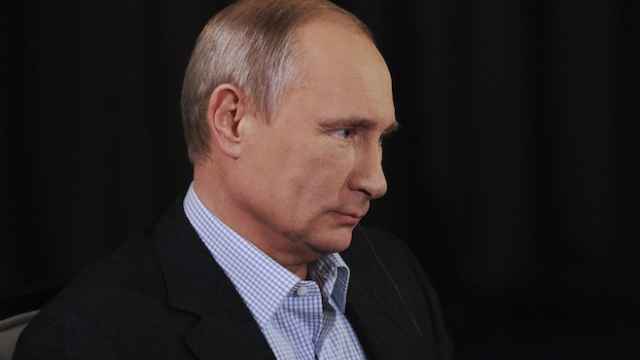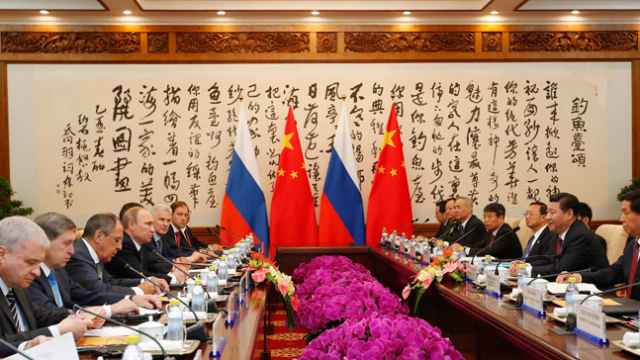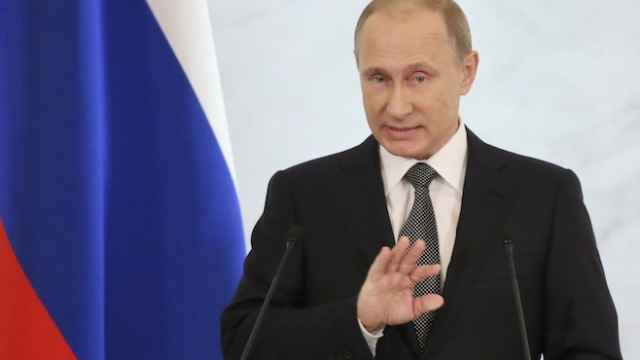President Vladimir Putin's annual state of the union address on Thursday takes place at a time of economic pain and international isolation unprecedented during the Russian leader's almost 15-year term at the helm of Russia.
More than 1,000 senior government officials will gather in the Kremlin to hear the keynote speech, listening for new policy announcements and for hints about how Putin is looking to deal with everything from the ongoing crisis in Ukraine and Russia's increasing international isolation to the future of the country's political system.
The Moscow Times compiled a list of five of the most pressing issues that Putin faces — issues on which lawmakers, analysts and the public will be looking for clarity.
The speech will be televised live by state-run channels starting at noon.
Internal Policy
- Political System and Cabinet
To tackle the economic crisis, Putin could introduce a more technocratic government and announce an "economic liberalization" program, rumors of which have surfaced in the press. But this would require introducing more competition into the political system and reforming the judiciary. Will Putin announce such a program or will he unleash state spending and institutions in pursuit of an "economic mobilization" program that will inevitably tighten the screws in the political sphere too?
- Civil Society and Media
With the majority of Russians mesmerized by patriotic fervor over the annexation of Crimea, Russia's nascent civil society has been marginalized almost to a point of extinction. The introduction of a law that limits foreign ownership of media outlets to 20 percent risks neutering Russia's media landscape. In past years it seemed important for Putin to maintain at least the impression of free media, but the question is whether this image still matters when Russia and the West are confronting each other directly.
Foreign Policy
- Ukraine and Crimea
Unlike Abkhazia and South Ossetia, Crimea was absorbed by Russia in the form of two new Russian regions. This has boosted Putin's popularity at home, but also limited his possibilities internationally — Crimea will be a long-term issue on which neither Putin nor the West will want to back down.
In the same vein, neither Russia nor the West is ready to lose Ukraine. Both sides have raised the stakes exponentially this year, while Ukraine's internal elite has consolidated itself around the idea of departing from Russian political, economic and cultural influence. The smoldering conflict in Ukraine's Donetsk and Luhansk regions threatens to turn into a long-term international problem that cannot be resolved without one side loosing face.
- The West
The Ukraine crisis has frozen Russia's ties with the U.S., but both sides have too many international responsibilities to abandon the relationship altogether. Will Putin use the U.S. as a scapegoat for internal problems, or will he signal that a more pragmatic relationship based on solving common problems can be built?
German Chancellor Angela Merkel has resolved to champion European unity even at the expense of Germany's bilateral relations with Russia. With her leading role in Europe, Merkel is the only possible interlocutor for Moscow in potential negotiations between Russia and the West. Will Putin make a specific mention of Russia's relationship with Germany, hinting that a bargain is possible?
- Pivot to China
Putin has promoted China as a potential substitute for economic ties with Europe, but it is clear that Beijing is eager to exploit Russia's rift with the West for its own benefit. Russia can only assume a role of a lesser partner, which will be difficult to swallow for elites in Moscow. How much attention will be devoted to China in the address will signal to what extent Russia's rapprochement with China is deep and long-term.
Contact the author at [email protected]
A Message from The Moscow Times:
Dear readers,
We are facing unprecedented challenges. Russia's Prosecutor General's Office has designated The Moscow Times as an "undesirable" organization, criminalizing our work and putting our staff at risk of prosecution. This follows our earlier unjust labeling as a "foreign agent."
These actions are direct attempts to silence independent journalism in Russia. The authorities claim our work "discredits the decisions of the Russian leadership." We see things differently: we strive to provide accurate, unbiased reporting on Russia.
We, the journalists of The Moscow Times, refuse to be silenced. But to continue our work, we need your help.
Your support, no matter how small, makes a world of difference. If you can, please support us monthly starting from just $2. It's quick to set up, and every contribution makes a significant impact.
By supporting The Moscow Times, you're defending open, independent journalism in the face of repression. Thank you for standing with us.
Remind me later.


